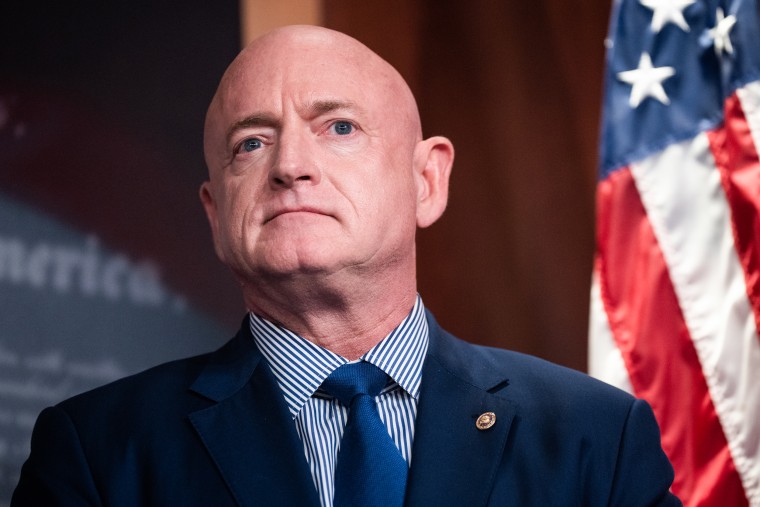A new AARP statewide poll of Arizona voters finds that Democratic Sen. Mark Kelly leads his Republican challenger, Blake Masters by 8 percentage points, 50% to 42%.
Kelly leads Masters among almost every demographic group, except men, where Masters leads Kelly 50% to 43% on a full ballot and 52 % to 45% when compared head-to-head. (The full ballot includes Libertarian candidate Marc Victor.)
In the governors' race, Republican Kari Lake and Democrat Katie Hobbs are virtually tied, with Hobbs leading Lake by just one point, 49% to 48%, well within the poll's margin of error.
Just three percent of voters report that they're undecided in that race.
Lake leads Hobbs among a few demographic groups, including voters over age 50, men and white voters. Hobbs leads among women, college educated voters and Hispanic voters.
Among the four major candidates — Kelly, Masters, Hobbs and Lake — Kelly holds the most favorable view among voters, with a 50% favorability rating among all likely voters. Masters has the lowest favorability rating, with a 37% rating from those surveyed.
Hobbs holds a 46% favorability rating and Lake holds a 43% rating.
The same poll finds that both parties are virtually tied on a generic congressional ballot, with Republicans leading by one point, 48% to 47%, once again within the margin of error.
Among national figures, all likely voters surveyed give President Joe Biden a 45% approval rating and give former President Donald Trump a 50% approval rating.
The AARP poll was conducted from September 8 through September 15 and surveyed a statewide representative sample of 500 likely voters and an oversample of 550 likely voters over age 50. The margin of error for the statewide representative sample is ±4.4%.

